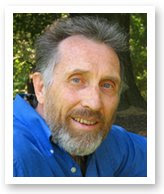Everyone wants it. It is the end of the line. When people are asked why they want more money, better relationships, or a more satisfying job, their response is often, "because it will make me happy." When anyone in any country is asked what they want out of life, the common answer is they their children to be happy. But, no one says they want to be happy so that it will get them something else. There's nothing after happiness.
Recently, science has begun to study happiness in spite of the many doubters who believed it could not be studied scientifically. Since 1981 the World Values Survey has conducted polls that measured happiness in 90% of the world's population. Although happiness increased in some countries, declined in others, stayed the same in one country, the overall increase in world happiness was 6.8 percent in the last seventeen years.
It appears there are three basic factors that contribute to increasing personal happiness. At the most basic level, individuals are happier when they live in a society where basic needs are met. In this situation, happiness increases when people have access to more medical care, clothing, shelter, food, and a longer life. However, once these basic levels are reached, more of the same does not result in increased happiness.
When these needs are satisfied, another level for attaining happiness is available: freedom. Freedom always implies social and religious tolerance. A society that promotes equality tends to increase the happiness of their citizens. Unfortunately, our brains have changed slowly over thousands of years and is still plagued by what some people call a "tribal mentality." This type of worldview promotes fear of anyone who is different from us and our immediate social group. Being accepting of people different than us can easily be threatening.
Only in recent times has the world at large believed that tolerating differences is a good thing. The research now bears this out. It is good because it advances well-being and happiness in people living in places where tolerance is accepted. People in tolerant societies are more happy than people living in tyrannical or intolerant societies.
Even freedom and tolerance have their limits for increasing happiness. Once these conditions are in place, happiness is to be found in what an individual does. Most happiness researchers agree that happiness is not a goal but a process of doing something meaningful with your life. To experience happiness at this third level, you need to find out who you are and what you can do that allows you to participate in something bigger than yourself.
In The Worry Free Life we learn about two types of happiness. One is short lived and only temporarily fulfilling; it then needs to be constantly renewed. The other kind of happiness is longer lasting and becomes a part of your being. The first is called the little h, the second is called the Big H. To obtain lasting happiness, you need to master three skills: healthy thinking, managing your emotions, engaging in meaningful and purposeful behavior.
Which of the following statements are true:
1. Happiness is a result of my biology. People are born with the ability to be happy.
2. It would surely be easier to be happy if life were different: better mate, more money, decent job.
3. Winning the lottery would make me happier in the long run.
You can read more about happiness at this link
If you would like to leave a comment, click on the comments link below
For an index of all blogs, go to Blog Index
Sunday, September 14, 2008
Subscribe to:
Post Comments (Atom)




No comments:
Post a Comment